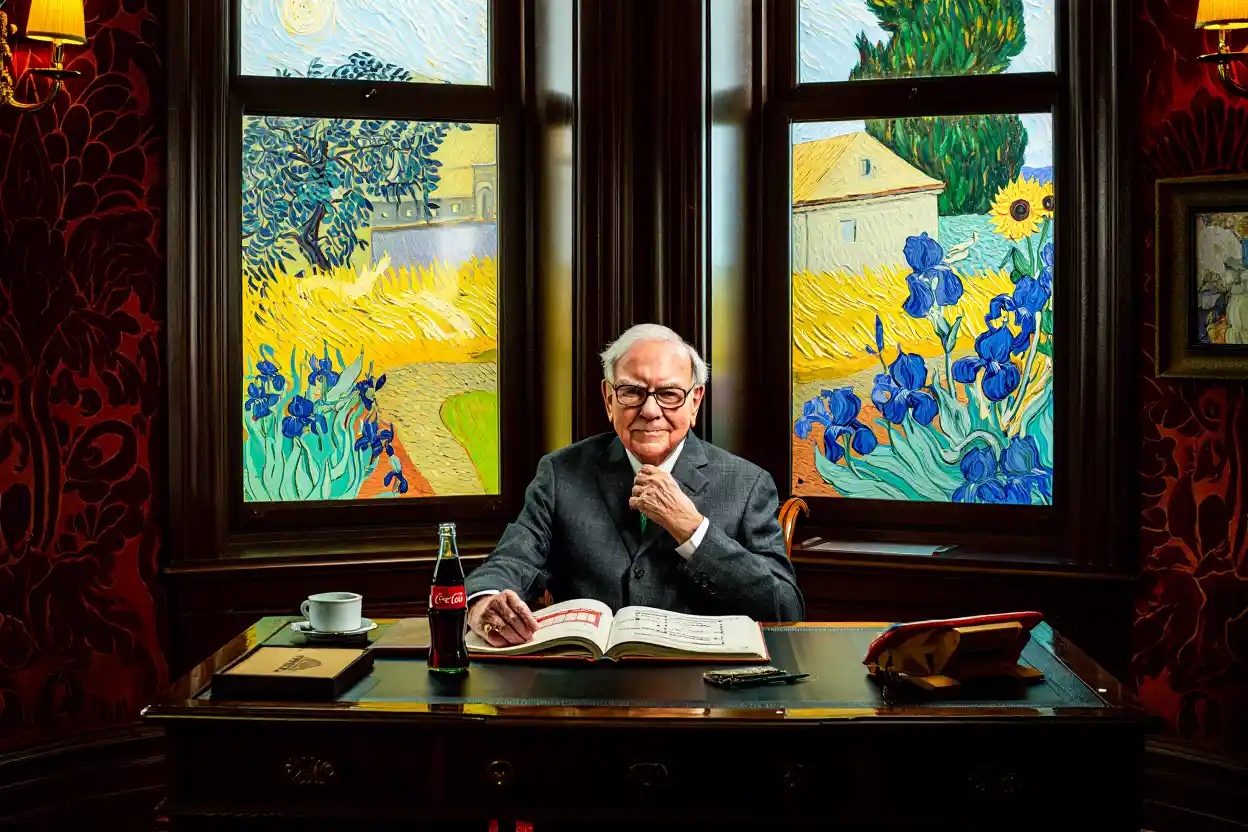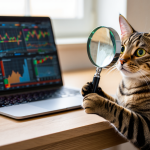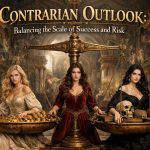? Warren Buffett Investment Advice for Novices: What They Don’t Teach You in Finance Class
April 15, 2025
Forget the Oracle Myths—Here’s the Mental Game Buffett Really Plays
Warren Buffett isn’t a wizard. He’s a predator of patience. A tactician of temperament. While the masses chase hot tips, IPO hype, and meme-stock mirages, Buffett does something radical—he waits. Not out of fear, but precision.
He’s not reading charts. He’s reading people.
Not forecasting markets. Forecasting madness.
This isn’t about stock selection. It’s psychological warfare. Buffett doesn’t beat the market—he sidesteps its delusions. He understands that real edge doesn’t come from financial models. It comes from knowing when the crowd is lying to itself.
And when they do? That’s when he strikes. Quietly. Brutally. Profitabl
? Invest in Businesses, Not Tickers
Buffett doesn’t chase hype. He hunts moats—those rare companies with deep emotional imprints in consumers’ minds. Coca-Cola wasn’t just a drink; it was a ritual. He saw that in the late ’80s, when others didn’t. He didn’t care about “momentum” or “technicals.” He saw brand equity, pricing power, and an empire the market was mispricing.
It was the same with American Express in the ‘90s. While analysts were still sharpening pencils, Buffett locked in long-term exposure to human habits—not trends. Habits.
He buys when the narrative is broken—but the business is not. He holds for decades because he’s not betting on price. He’s betting on Human behaviour or, more aptly put, human folly.
? Know What You Own—Or Don’t Touch It
Buffett’s circle of competence isn’t just a rule—it’s a boundary that keeps greed from infecting discipline. While others got drunk on dot-com dreams, Buffett passed. Not because he hated tech—but because he didn’t understand it yet.
He didn’t FOMO into crypto, NFTs, or whatever Wall Street’s latest sugar high was. He waited. When Apple finally made sense—not just as a stock, but as a psychological ecosystem—he went in heavy.
His edge? He reads annual reports like detective novels. He knows the characters, the plot, the tension points. He doesn’t need price targets. He needs narrative clarity.
?️ Margin of Safety: The Only Real Defense
Buffett’s margin of safety isn’t just a buffer—it’s armor against delusion. It’s how you survive when you’re wrong, and thrive when you’re right.
In the early ’90s, Salomon Brothers was radioactive. The crowd ran. Buffett stepped in. Not because he liked the scandal—but because he saw value buried under panic.
Same playbook in the 1970s with Washington Post. Everyone saw noise. He saw underpriced influence. He didn’t buy volatility—he bought resilience.
That’s the Buffett difference: He doesn’t pray for gains. He demands protection. He buys discounted certainty, not bargain-bin chaos.
? The Real Buffett Playbook: Psychology > Projections
Buffett isn’t about complicated formulas. He’s about clarity in chaos. When others are reactive, he’s reflective. While they chase returns, he stalks conviction.
His empire wasn’t built on forecasts—it was built on fortitude.
Forget the spreadsheets. Watch the crowd. Understand the business. Wait for the window. Then act with cold precision when everyone else is emotionally haemorrhaging.
That’s not just investing.
That’s war.
? Play the Long Game or Get Played
Buffett isn’t playing checkers while the rest play chess. He’s not even on the same board. He’s playing a meta-game—time arbitrage. In a world hypnotised by flashing screens and dopamine-charged trades, he sits back and lets the chaos cannibalise itself.
To him, stocks aren’t tickers—they’re businesses. Breathing, sweating, evolving systems. He’s not buying volatility. He’s buying cash flow 10 years from now while you’re panicking over a 10-minute candle.
Coca-Cola, 1988. He loaded up not because it was cheap but because it was inevitable. A brand embedded in the bloodstream of global culture. He didn’t need a breakout pattern. He needed patience—and conviction.
The market flinches. Buffett watches.
The market rallies. Buffett yawns.
The market crashes. That’s his signal.
He doesn’t react to noise. He weaponises silence.
This isn’t about buy-and-hold dogma. It’s about emotional fortitude. The kind you can’t download from a trading app.
Long-term thinking isn’t a timeframe. It’s a psyche upgrade.
? Your Gut or the Crowd—Pick One
Most traders outsource their conviction. Buffett doesn’t. He’s allergic to consensus. When everyone zigged, he zagged—and did it with an unsettling calm.
American Express, 1960s. Salad Oil Scandal wrecked the stock. Blood in the streets. Buffett loaded the boat. Not because he liked pain, but because he smelled opportunity mispriced by emotion. He didn’t ask, “What’s the market doing?” He asked, “What is this business worth when the hysteria dies?”
That’s the real game: see clearly when others hallucinate.
Trust your judgment when the herd screams you’re wrong.
Buffett’s edge isn’t IQ. It’s emotional sovereignty.
He reads the tape of behaviour, not just the charts.
And he practices this edge off the field, too.
Self-investment isn’t a slogan—it’s his operating system.
That public speaking course? It wasn’t about confidence. It was about range. Knowing how to express conviction when it matters most.
You’re not just trading stocks. You’re trading your own calibration.
Sharpen it. Daily.
? Price Is Noise. Value Is Signal. Know the Difference or Get Eaten
Buffett doesn’t chase price. He diagnoses value.
The crowd sees movement. He sees mispricing.
The crowd wants excitement. He wants margin of safety.
Price is a story the market tells you.
Value is the truth it tries to hide.
GEICO, mid-70s—trading like trash. Buffett ran the numbers and saw a gold mine beneath temporary dysfunction. He pounced. Not on the hype. On fundamentals ignored by fear.
You can’t fake this. You need clarity under pressure.
To see when value is screaming beneath the fog of panic.
That’s not contrarianism for show. That’s surgical thinking in the middle of emotional chaos.
? Diversification: Security Blanket or Excuse to Not Think?
Diversification sounds smart. Safe. Academic.
Buffett calls it out for what it often is: di-worsification.
Over-diversifying isn’t protection—it’s dilution. A polite way of saying: I don’t know what I’m doing, so I’ll spread the risk so thin it won’t matter.
Buffett doesn’t diversify to feel better. He concentrates to win.
A few deep dives. Massive conviction. Relentless due diligence.
Berkshire’s portfolio isn’t a buffet. It’s a sniper rifle.
That takes courage. And most investors don’t have it.
They’re too busy managing their fear—not maximizing their edge.
Wanna be average? Own 30 stocks.
Wanna be wealthy? Bet heavy on what you know better than 99% of people.
? Mistakes Aren’t Failures. They’re Feedback. Use Them or Repeat Them
Buffett isn’t bulletproof. But here’s the power move—he owns his misfires publicly.
Dexter Shoes, 1993. He got blindsided by foreign competition. Wrote about it. Learned from it. Moved on stronger.
Most investors deny, hide, or bury mistakes. Buffett publishes his. Why? Because humility fuels evolution.
He doesn’t fear being wrong. He fears not learning fast enough.
This mindset isn’t soft. It’s savage.
It turns every scar into strategy.
? Buffett’s Real Playbook: Beyond Formulas, Into Frameworks
You want a checklist? Buffett will disappoint you.
You want a framework to see the world differently? That’s where he shines.
- Think in decades. Act in moments.
- Outwait the irrational.
- Use fear as a market signal, not an emotional trigger.
- Don’t just read balance sheets. Read human behavior.
The Warren Buffett strategy isn’t about finance.
It’s about psychological asymmetry.
He’s not beating the market. He’s front-running its emotional patterns.
? Final Charge: Buffett Isn’t a Myth. He’s a Mirror
His success reflects what most can’t handle:
- Delayed gratification.
- Mental solitude.
- A ruthless filter for noise.
- An ability to watch the world scream and still do nothing… until it’s time.
Buffett isn’t magic.
He embodies what works—when you’re ready to stop lying to yourself.











